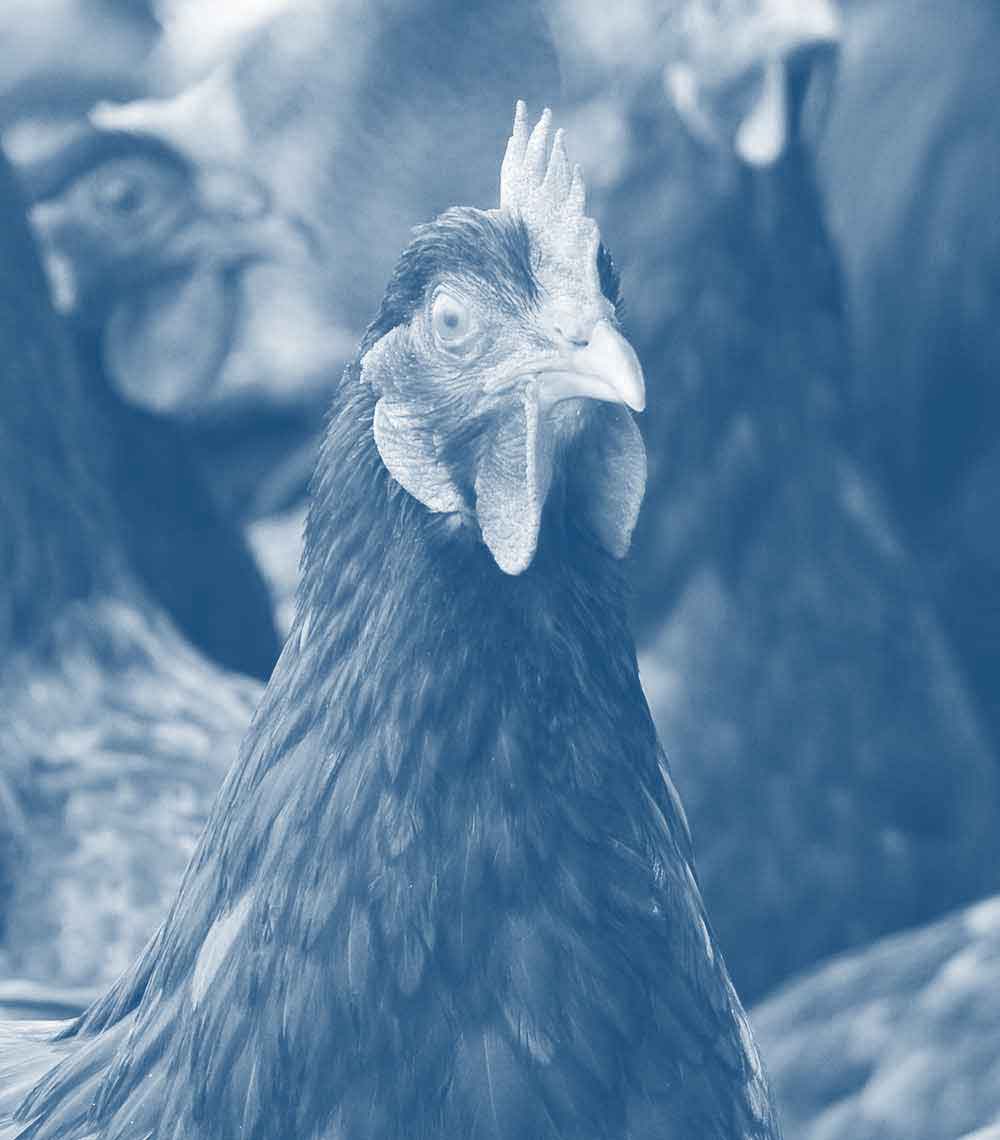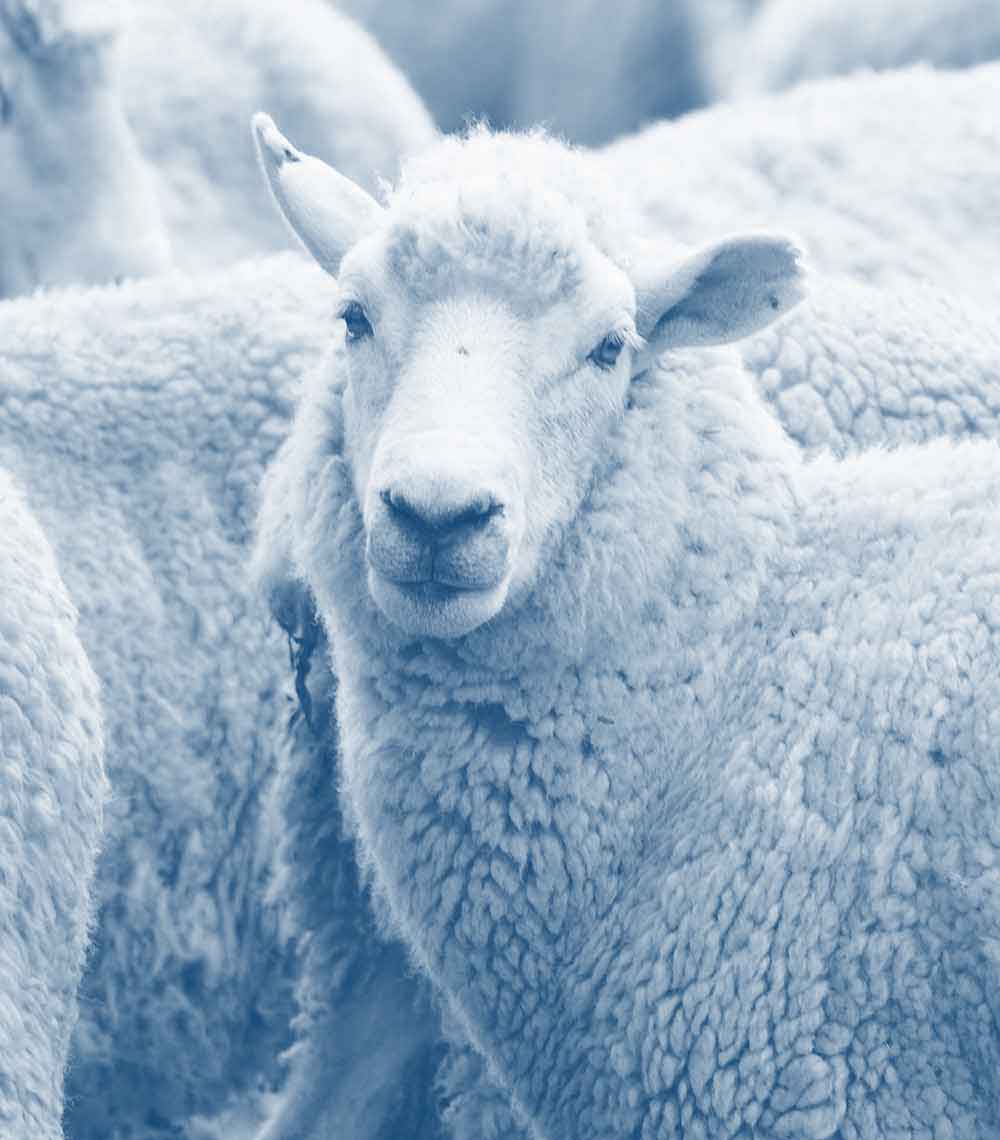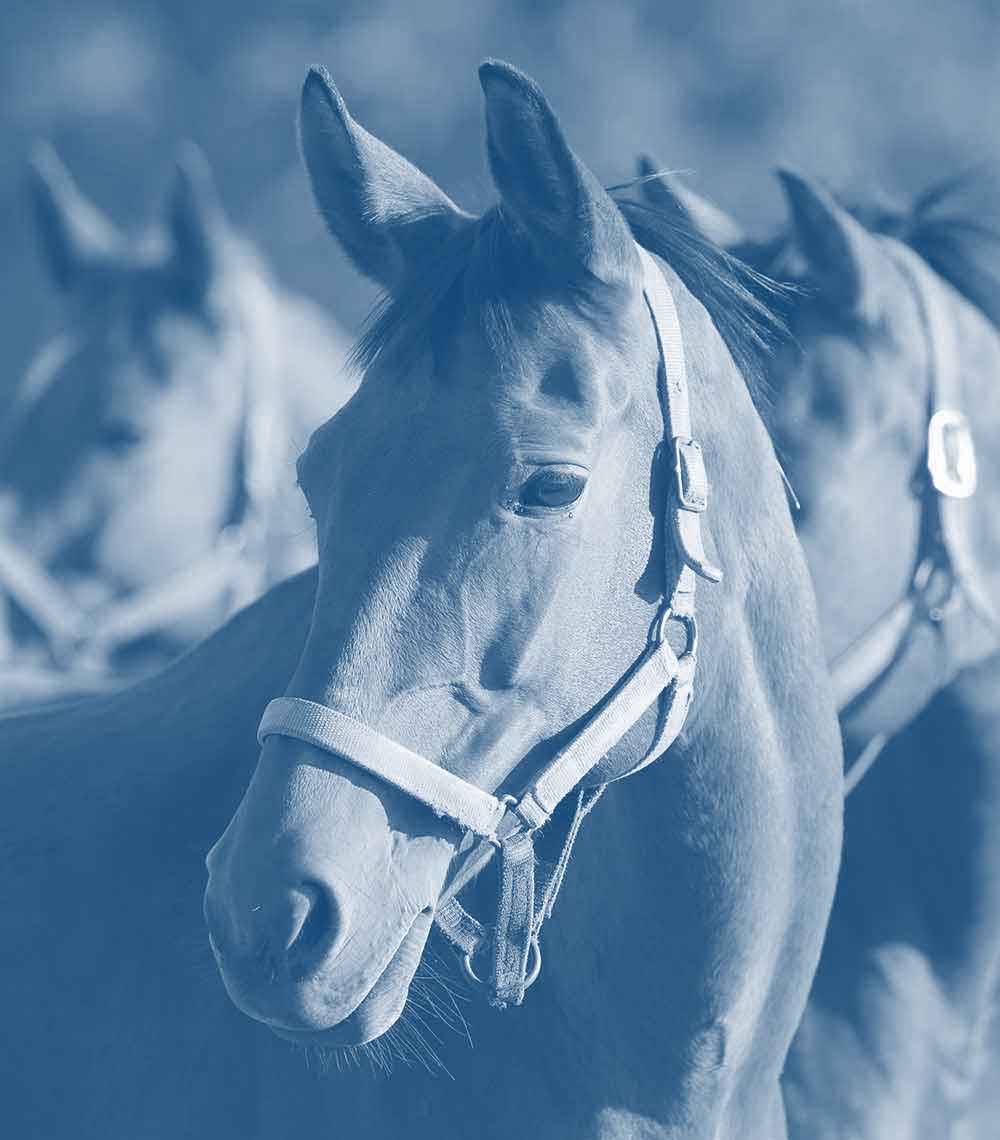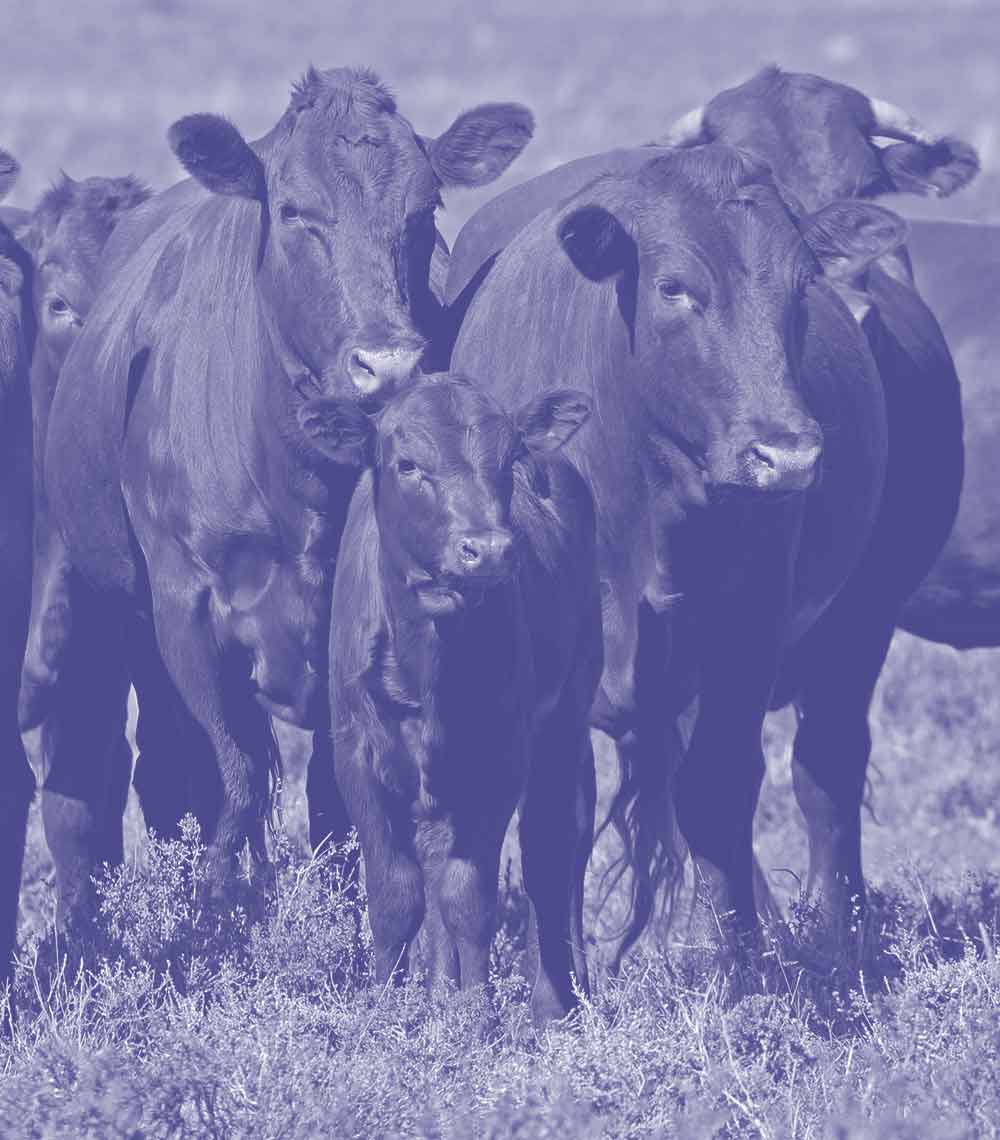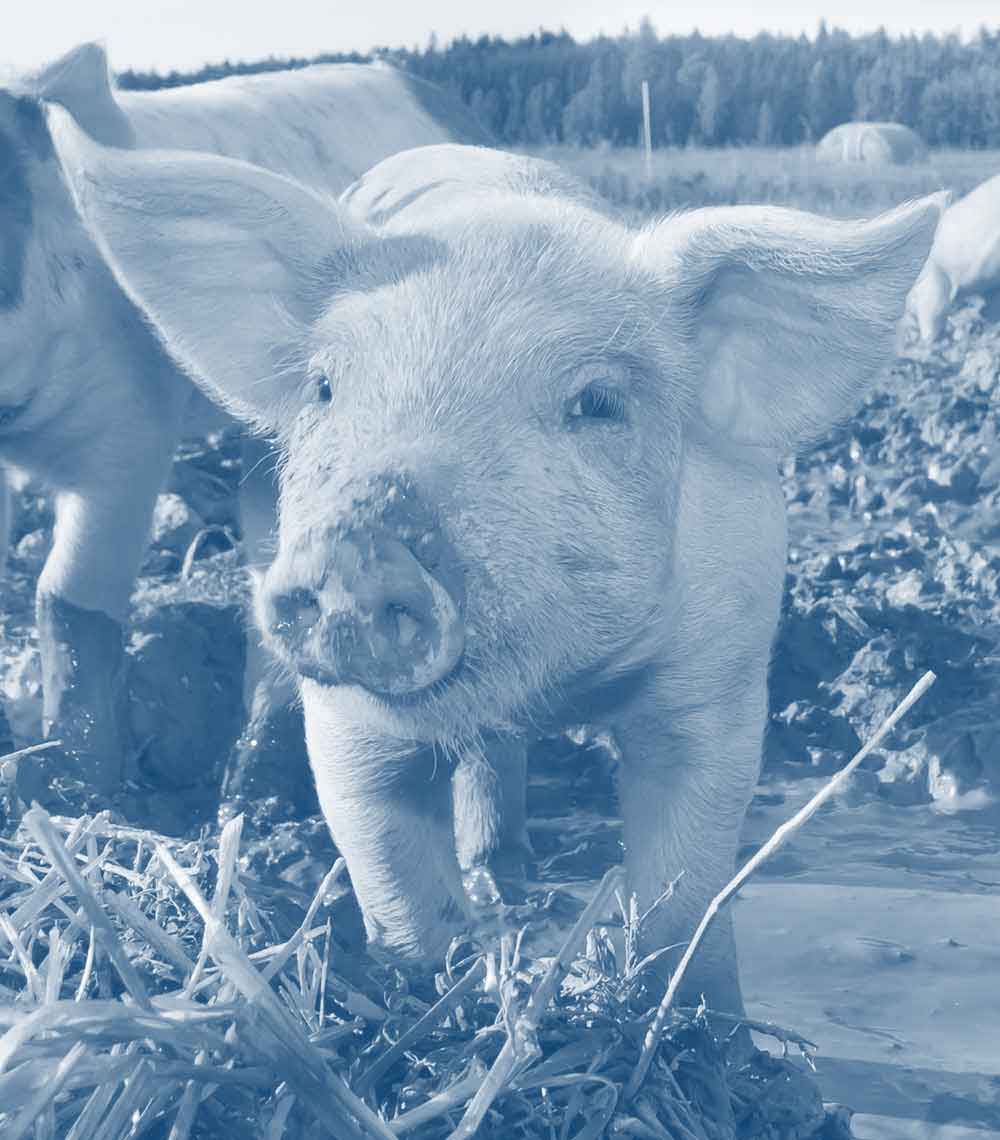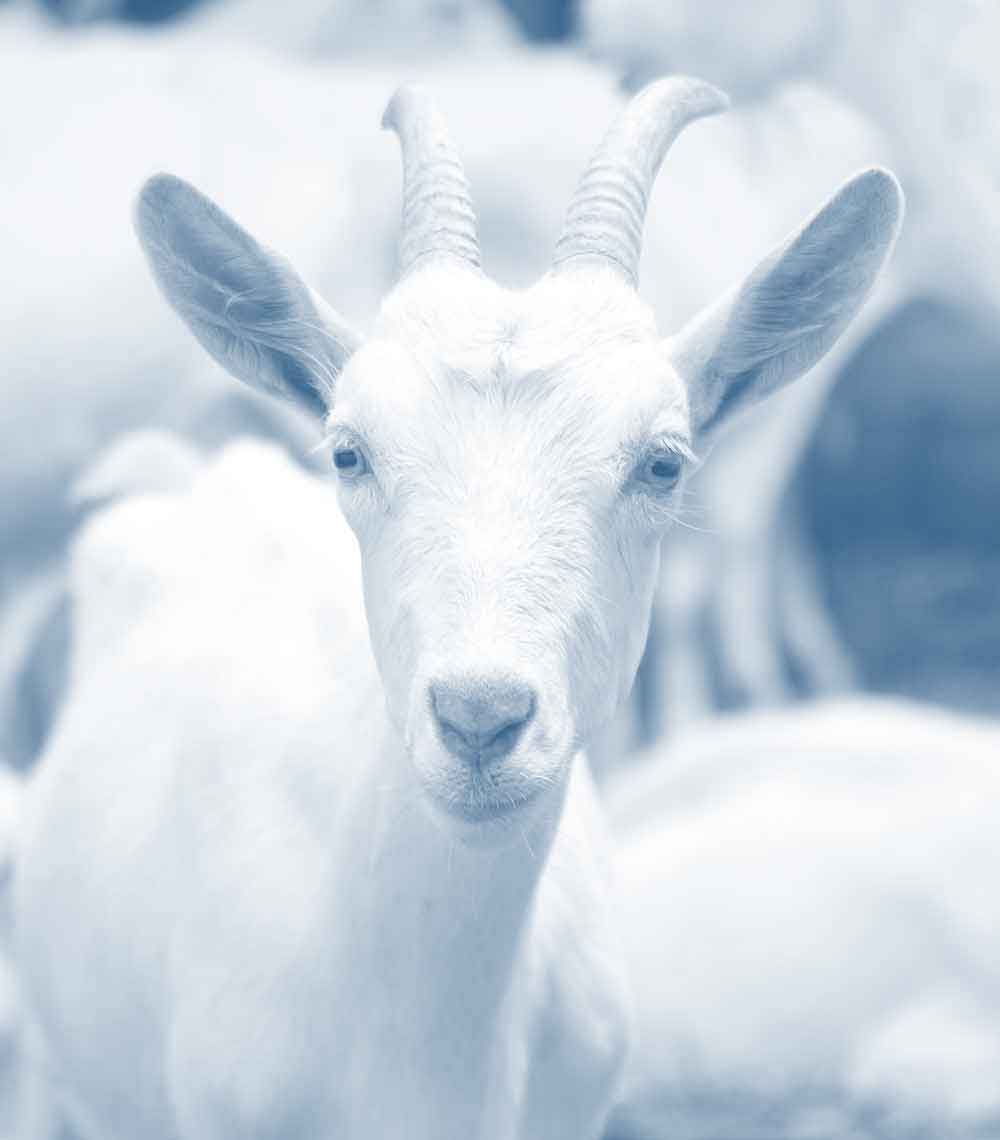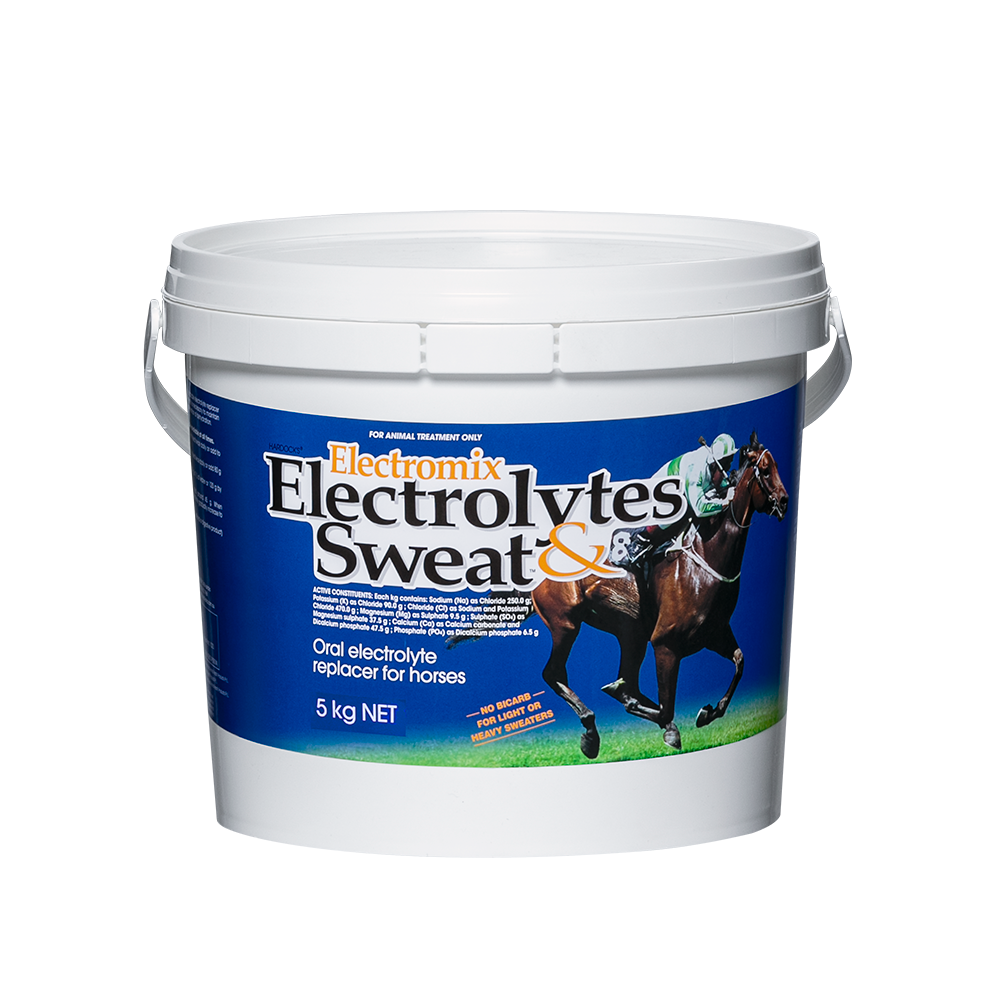
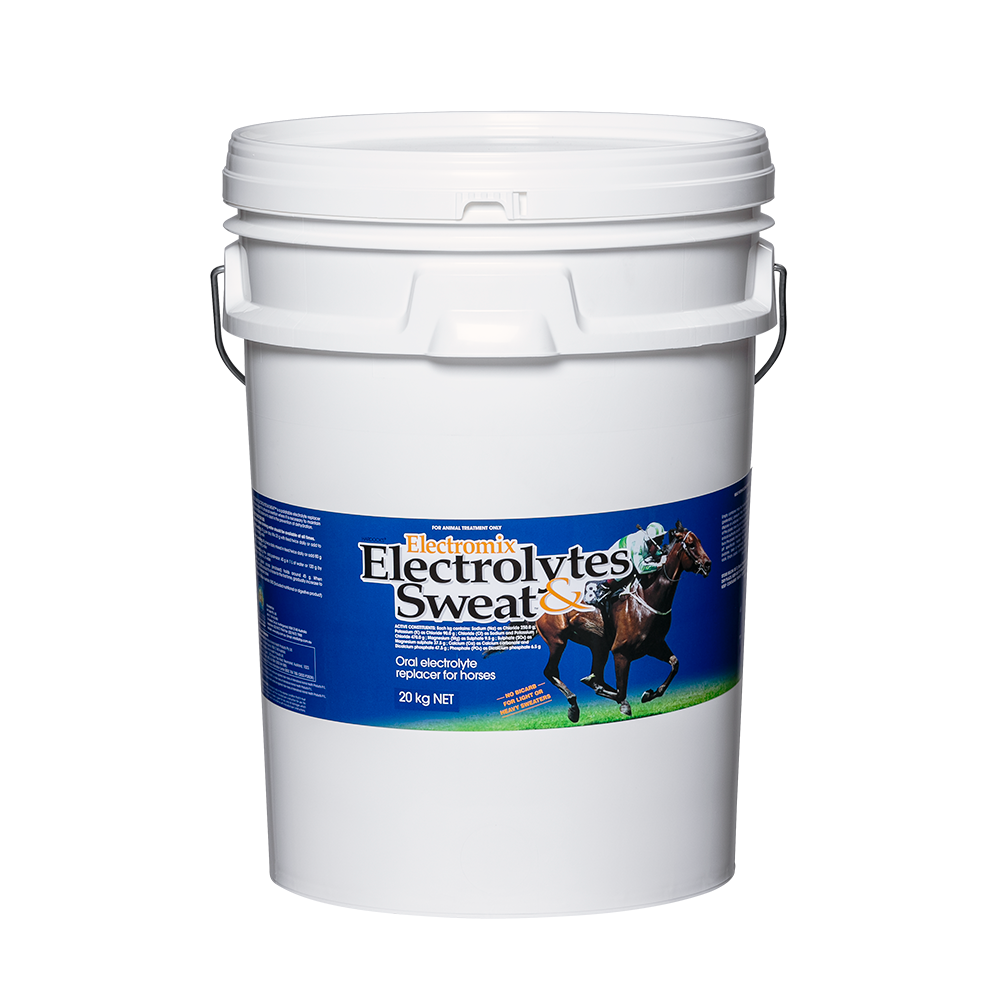
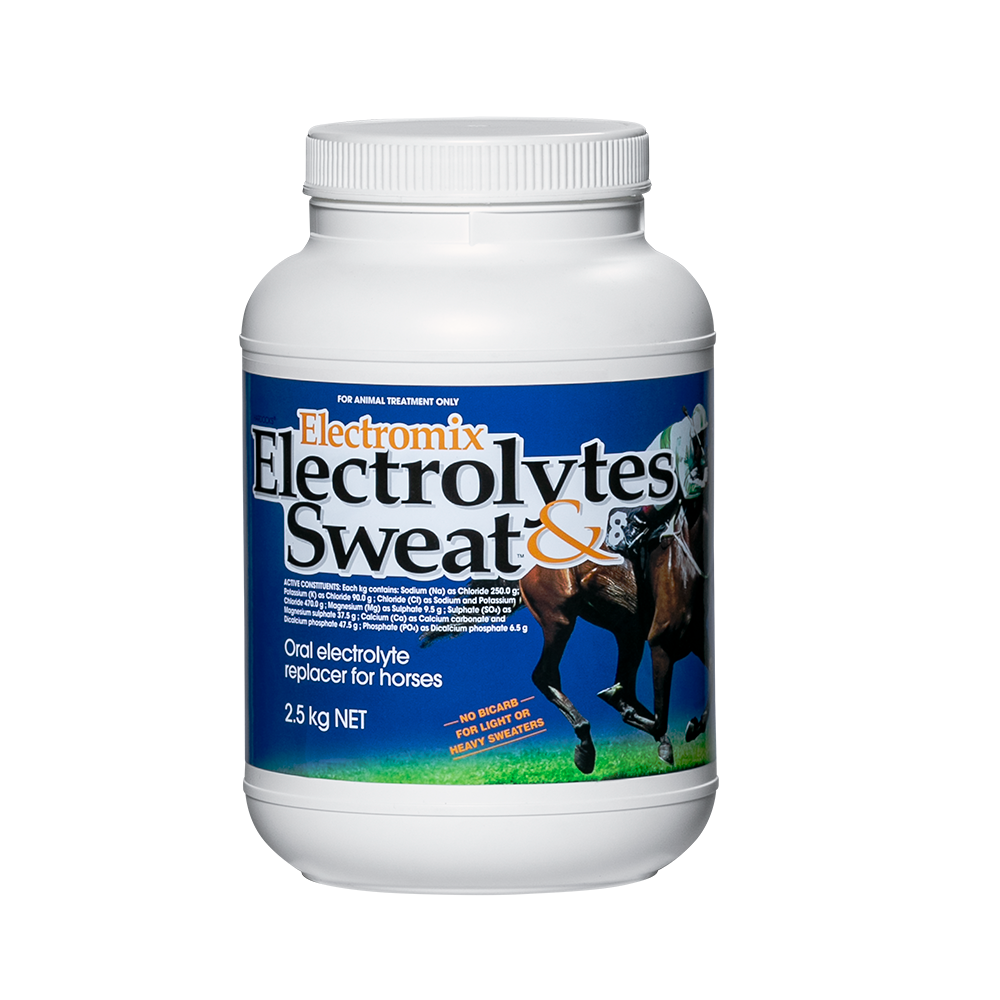
Electrolytes for Horses
A balanced mixture of important electrolyte ions for racing and performance horses. DOES NOT CONTAIN BICARBONATE
- Formulated for horses that are subjected to continual periods of physical exertion resulting in body salt and fluid loss, helping to correct fluid balance and to assist in the prevention of dehydration.
- Electrolyte replacer - Sodium, potassium and chloride ions are the three ions that are predominantly lost in sweat.
- The maintenance of correct fluid balance is critical to the performing athlete.
- Most racing and competing horses are able to maintain their acid/alkali balance when provided with an appropriate electrolyte mix such as ELECTROMIX ELECTROLYTES & SWEAT™ and free access to water at all times.
Pack sizes: 2.5 kg (contains 62 x 40 g doses), 5 kg (contains 125 x 40 g doses), 20 kg (contains 500 x 40 g doses
Available: Australia, New Zealand
Q. Can you give horses electrolytes daily?
Q. How do I know if my horse needs electrolytes?
1. Heavy Sweating:
- If your horse sweats a lot, especially during exercise or hot weather, it loses essential electrolytes like sodium, chloride, potassium, and magnesium.
- You may notice white, salty streaks on their coat where sweat has dried.
- Horses that are low on electrolytes might show signs of tiredness, weakness, or muscle fatigue during or after exercise. They may struggle to recover after strenuous activities.
- If your horse seems to be underperforming compared to their usual capacity, it could be a sign of electrolyte imbalance.
- Dehydration is closely tied to electrolyte loss. Signs of dehydration include dry mucous membranes, sunken eyes, or delayed skin elasticity (skin pinch test: if the skin doesn’t snap back quickly).
- Electrolyte imbalances can reduce a horse's desire to drink, exacerbating dehydration and worsening the situation.
- Muscle stiffness or cramps, especially after exercise, can be a sign of electrolyte depletion. Horses prone to tying-up syndrome often benefit from electrolyte supplements.
- In hot and humid environments, horses lose electrolytes more rapidly, increasing the risk of heat stress. Symptoms include heavy panting, elevated heart rate, and difficulty cooling down after exercise.
- If your horse’s diet is not adequately balanced, particularly if forage and grains don’t meet their mineral needs, they may require additional electrolyte supplementation.
Q. How do you replenish electrolytes in horses?
Q. Should I give my horse electrolytes in the winter?
Q. What are electrolytes good for in horses?
Electromix Electrolytes & Sweat™
Formulated for horses that are subjected to continual periods of physical exertion resulting in body salt and fluid loss, helping to correct fluid balance and to assist in the prevention of dehydration. Sodium, potassium and chloride ions are the three ions that are predominantly lost in sweat. Calcium and magnesium play the role in neuromuscular transmission. Calcium is a nerve cell stabiliser. They are major body salts, responsible for control of osmotic pressure, acid-base equilibria in body fluids and the maintenance of electrolyte gradients within the tissues.
S.D.S DATASHEET

